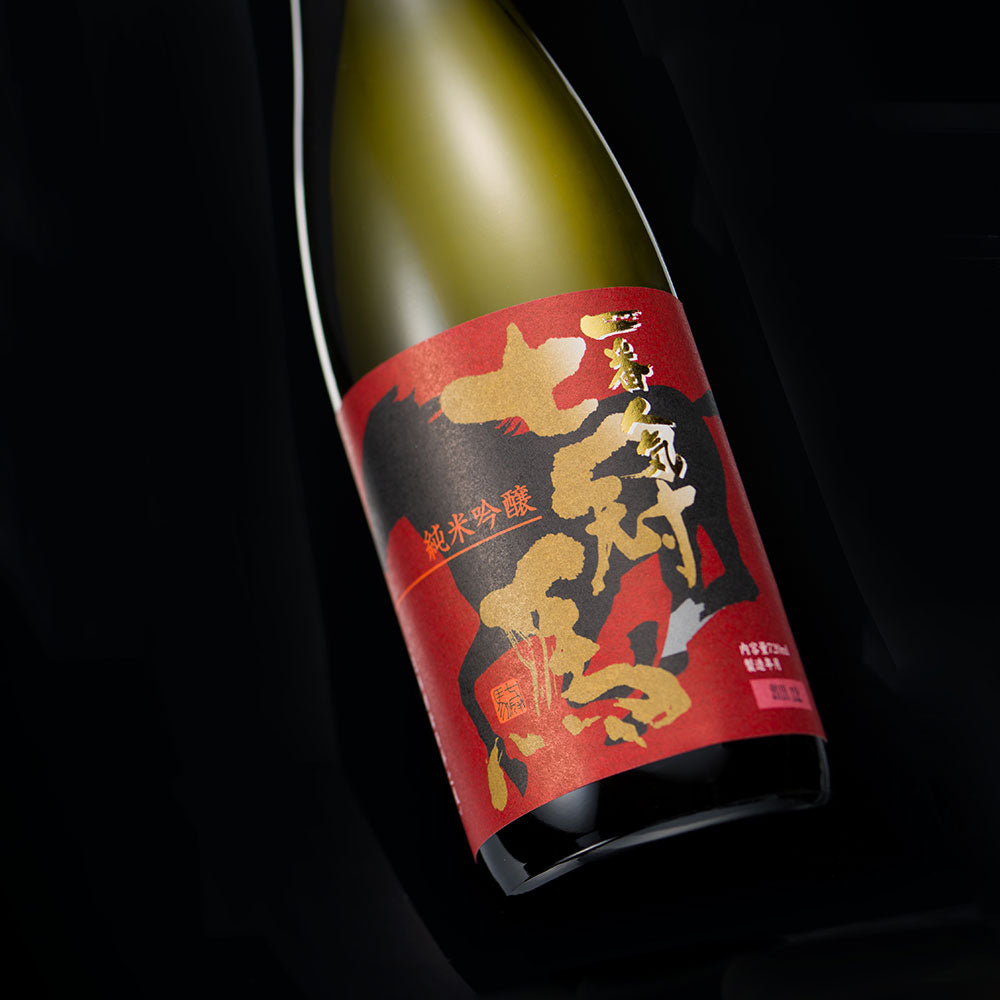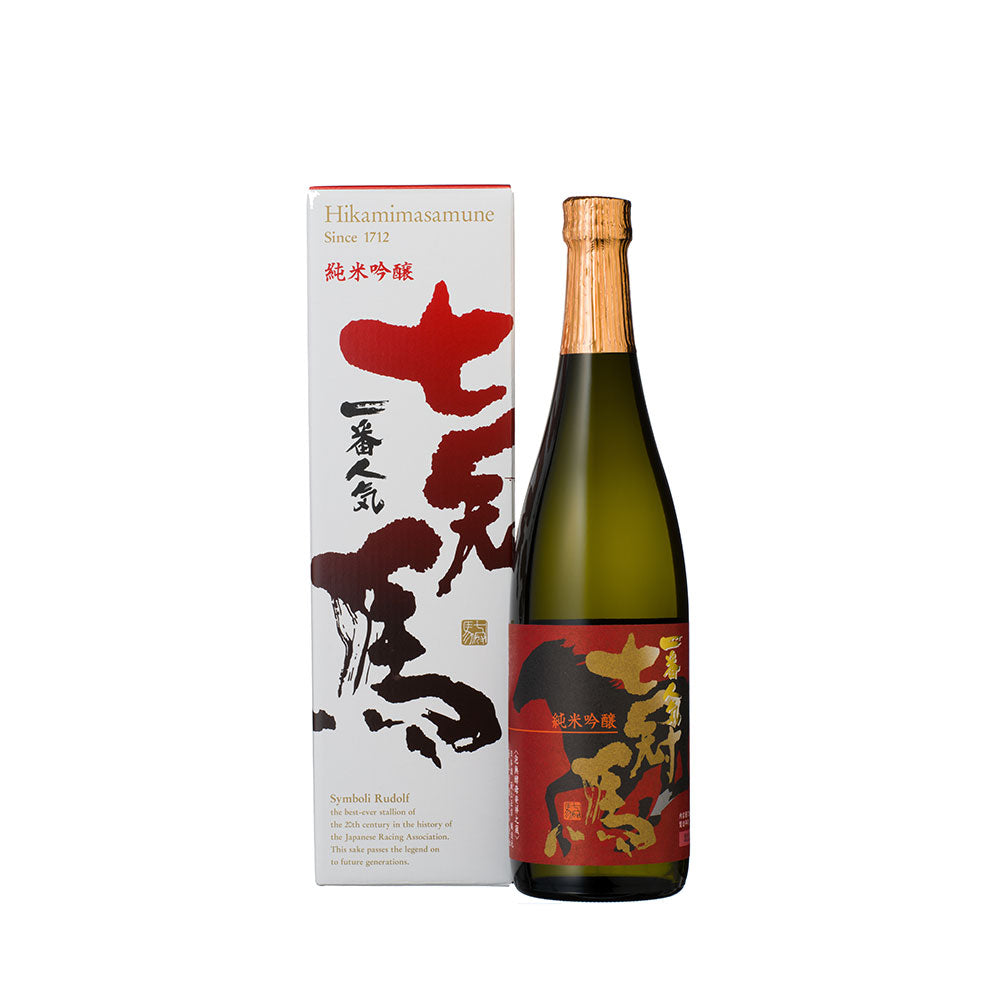-
 >
>
- Product list >
- Nanakanba Ichiban-ninki Junmai-ginjo (720ml)
Nanakanba Ichiban-ninki Junmai-ginjo (720ml)
詳しく見る
- *All prices shown are the product prices from the Japanpage:.
- *Product price can be shown in multiple currencies as reference values.
- *Payment should be made in Japanese yen.
- *After filling in delivery address, grand total (product price + shipping cost (packing + shipping + insurance) +tariffs & taxes) will be shown on the shipping cart page.
- *All prices shown are the product prices from the Japanpage:.
- *Product price can be shown in multiple currencies as reference values.
- *Payment should be made in Japanese yen.
- *After filling in delivery address, grand total (product price + shipping cost (packing + shipping + insurance) +tariffs & taxes) will be shown on the shipping cart page.
"Nanakanba Ichiban-ninki Junmai-ginjo" is a Junmai-ginjo brewed from the “king” of sake brewing rice, "Yamada Nishiki". The rice is polished to a ratio of 50%. Prepared by Chief Brewer Izumo, a highly skilled industry veteran, the sake is brewed with pure water from the town of Okuizumo in the San’in region. The sake gives off the pleasant aroma common to ginjo sakes. A single sip fills the mouth with the flavor of Yamada Nishiki rice, leaving a crisp, clean aftertaste. The sake has a good balance of aroma, flavor, and crispness. The Nanakanba band was named as such because of a ranch-owning family relation of the brewery owne. One ranches horses went on to take all seven crowns of the G1 Japan Cup. The sake’s title of ichiban niniki or “most popular” is an auspicious one, as it is also the title given to the racing horse that sells the most betting tickets. This Junmai-ginjo makes a delicious pairing for dishes of all kinds.
Pairing food proposed from Vendor
White fish sashimi, sushi
About "Nanakanba"
"Nanakanba" is a brand named after a legendary Japanese race horse that took all seven crowns of the G1 Japan Cup. The sake of this famous brand is prepared by Chief Brewer Izumo, who uses traditional brewing techniques. The brand’s sake is made with carefully selected sake rice varieties and pure water from the town of Okuizumo. Nanakanba sake is dry but pleasant to the palate, with delicate scents and crisp flavors.
Recommended temperature
- Atsukan (50 - 55℃)
- Jokan (45 - 50℃)
- Nurukan (30 - 40℃)
- Room temperature (15 - 20℃)
- Hanabie (10℃)
- Yukibie (5℃)
Type


Tag
Appearance
-
Clarity
Transparency
Hazy
-
Colour
Colorless
Dark brown
-
Intensity
Water
Deep
Nose characteristics
-
Intensity
Low
Strong
Taste characteristics
-
Light / Body
Light
Body
-
Sweet / Dry
Sweet
Dry
-
Simple / Complexity
Simple
Complexity
-
Acidity
Low
High
-
Umami
Low
High
-
Finish
Low finish
Long finish
Aroma and flavor
Apple
Detailed information
| Volume | 720ml |
|---|---|
| Size (L W H) | 7.5 x 7.5 x 29.5 cm |
| Weight | 1.2kg |
| Ingredients | Rice, Rice koji, Water |
| Region | Shimane |
| Alcohol content | 16%vol. |
|
Sake Meter Value
|
+4 |
|
Acid level
|
+1.5 |
|
Polishing ratio
|
50% |









